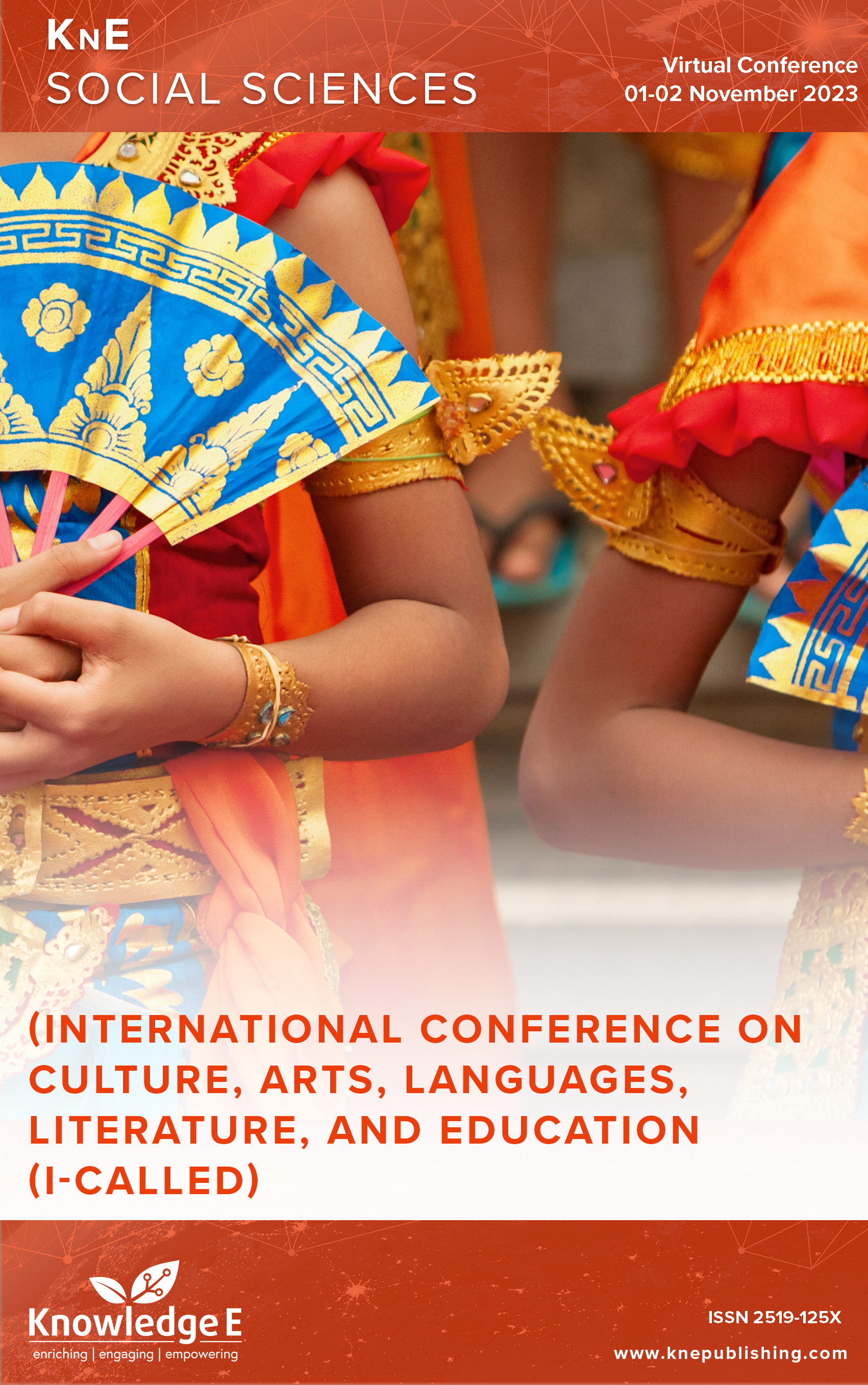Readiness of the 4th Semester Japanese Grammar Syllabus in Accomplishing the Learning Targets on MBKM Curriculum at Jakarta State University
DOI:
https://doi.org/10.18502/kss.v9i9.15654Abstract
This study aims to find out how the suitability between the Bunpo IV syllabus is currently used with the language learning target in the Japanese Language Education Study Program at Jakarta State University which is based on the MBKM curriculum also known as Merdeka Belajar Curriculum. The curriculum is following the MBKM Curriculum listed in Permendikbud No. 3 of 2020. The regulation said that students have the right to study outside of the campus after completing 4 semesters. Therefore, students can choose internship programs abroad or in the country, as well as participate in student exchange programs The offers for internships are numerous, so it raises the interest of students to join it. But behind the enthusiasm of students for this Merdeka Belajar program, there is a concern that the learning targets of students who take part in the internship program, especially language courses, will decrease and not meet the target of learning study program itself. The main goal of the graduation requires students to pass the Japanese Language Proficiency Test ( JLPT) level N3, before taking the thesis exam. Bunpou IV is a course that contains grammar level IV or equivalent intermediate level, this course is quite related and has become the foundation of other language courses. The material provided up to Bunpo IV is equivalent to the Japanese language skills in JLPT N3 which is the requirement for graduating from the study program. This study is part of research and development (R&D) with a mixed quantitative and qualitative approach. Especially for the first year of research, the approach used is a qualitative approach through document analysis currently used in the Bunpou IV course. The technique used in collecting data is records and archival review of syllabus, teaching materials, and JLPT N3 simulation results. From the JLPT simulation results, it was found that student readiness to pass JLPT N3 had only reached 23.5%. Of the respondents who did not pass, it was found that 9.8% did not pass the Moji Goi section (letters and vocabulary), 47.06% did not pass the Bunpo Dokkai section (grammar and reading comprehension), and 23.53% did not pass the Choukai section (listening comprehension). From this result, we know that it is necessary to re-evaluate and conduct the development study of syllabus of the Bunpo IV course based on the Merdeka Belajar Curriculum in the Japanese Language Education Study Program, FBS UNJ.
Keywords: MBKM curriculum, Bunpo IV, JLPT N3
References
Undang-undang (UU) Nomor 20 Tahun 2003 tentang Sistem Pendidikan Nasional. Jakarta: Indonesian Government; 2003.
Tokatli AM, Kesli Y. Syllabus:how much does it contribute to the effective communication with the students? Procedia Soc Behav Sci 2009; 1: 1491–1494. DOI: https://doi.org/10.1016/j.sbspro.2009.01.263
Kodama Y, Kida M. 文法を教える (1st ed.). Tokyo: The Japan Foundation; 2010.
Yassi H, Kaharuddin. Syllabus Design for English Language Teaching (2nd ed.). Jakarta: Prenadamedia; 2018.
Richards JC. Curriculum Development in Language Teaching. Cambridge University Press, 2001. Epub ahead of print 12 March 2001. DOI: 10.1017/CBO9780511667220. DOI: https://doi.org/10.1017/CBO9780511667220
Pusdiklat Pegawai Kemendikbud. Modul Pengembangan Silabus dan Penyusunan Rencana Pelaksanaan Pembelajaran [Syllabus Development Module and Preparation of Learning Implementation Plans]. Jakarta: Pusdiklat Pegawai Kemendikbud; 2016. https://pusdiklat.kemendikbud.go.id
Oyanagi N. New Approach Japanese Intermediate Course (4th ed.). Tokyo: Nihongo Kenkyusha; 2004.
The Japanese Foundation. 日本語のうりょく試験JLPT公式問題集. Tokyo: Bonjinsha; 2012.
The Japan Foundation. New Japanese-Language Proficiency Test Guidebook. Tokyo: The Japan Foundation; 2009. https://www.jlpt.jp/e/reference/pdf/guidebook_s_e.pdf
Bachman LF, Palmer AS. Language Assessment in Practice. Oxford: Oxford University Press; 2010
Roberts JT. The Communicative Approach To Language Teaching:the King Is Dead! Long Live the King!. International Journal of English Studies 2004; 4(1): 1– 37. https://files.eric.ed.gov/fulltext/EJ1072195.pdf

